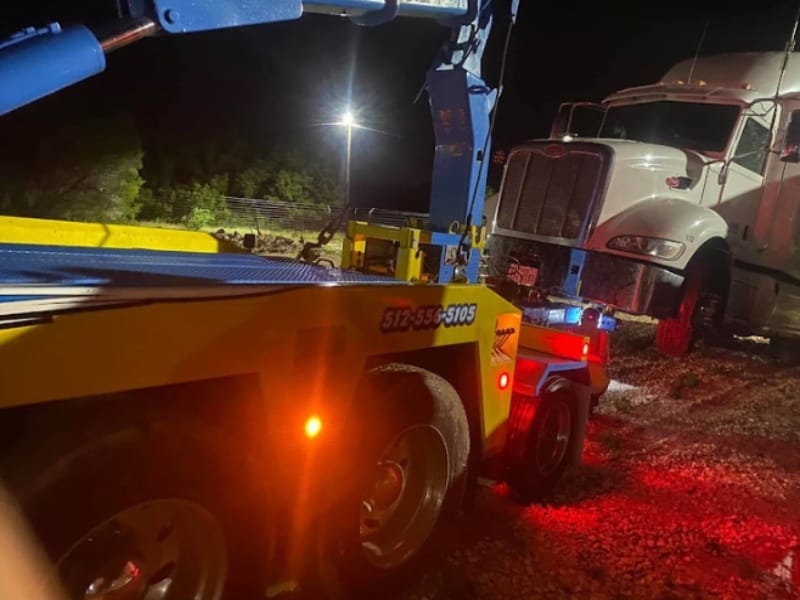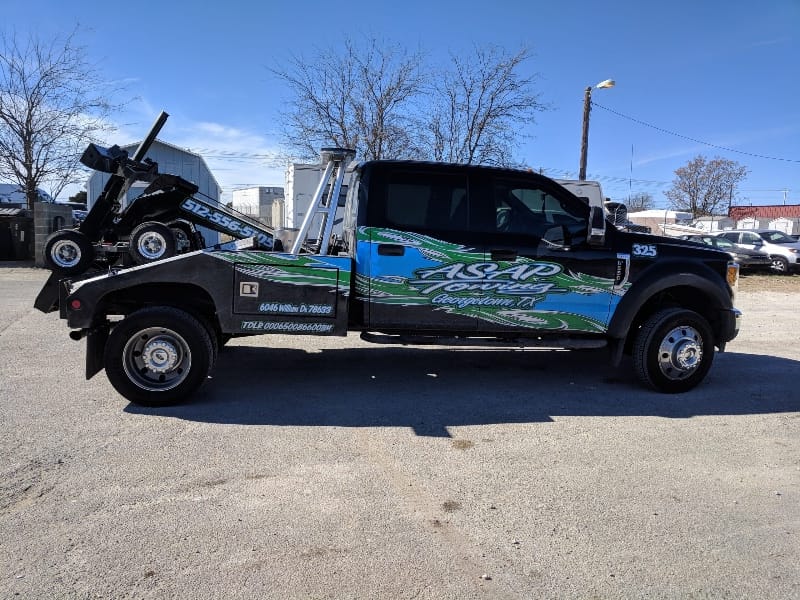Staying Ahead of Trouble on the Road
No one wants to feel their trailer swinging out of control behind them. Jackknifing is one of the scariest situations a trucker can face—and once it starts, there’s often no stopping it. It’s not just dangerous for the driver, but for anyone else on the road. As a towing team that provides Georgetown heavy recovery, we’ve seen how quickly things can go wrong. But here’s the good news: with the right knowledge and habits, jackknifing is preventable in many cases.

What Causes Jackknifing?
Jackknifing happens when a trailer swings out from behind the cab, forming an L or V shape. Once a rig folds like that, control is lost, and the chances of a rollover or serious collision skyrocket. We’ve handled recoveries from jackknifed trucks in all conditions, and a few common triggers show up time and time again.
Sudden Braking
Slamming on the brakes causes the wheels to lock up—especially if the trailer isn’t evenly loaded or if road conditions are slick. When the trailer can’t slow down as fast as the cab, it starts to swing.
Poor Road Conditions
Ice, snow, rain, or loose gravel reduce traction. Even seasoned drivers can misjudge how slippery a road is, leading to loss of control.
Speed and Sharp Turns
Going too fast around a curve or exit ramp increases the risk. Trailers don’t respond the same way a car would. Once the trailer starts to shift out of line, things get dangerous fast.
Improper Loading
Uneven or unsecured cargo creates instability. A poorly loaded trailer can sway or react unpredictably in a sudden stop or sharp turn.
Habits That Keep You in Control
We’ve seen jackknifing accidents on highways, backroads, and loading yards. But in our experience providing Georgetown heavy recovery service, the safest drivers all have a few things in common. Here’s what they do differently:
Keep Your Speed in Check
It sounds basic, but speed is the #1 factor in most jackknife recoveries we handle. Slowing down gives you more time to react—and helps the trailer stay aligned.
Brake Gradually
Hard braking throws off balance. Instead, anticipate slowdowns and apply brakes gently. Use engine braking when possible, especially downhill or in slick conditions.
Know Your Load
Before hitting the road, take a minute to check the cargo. Is it secured? Is the weight distributed properly? Unbalanced loads can cause trailers to fishtail or sway unpredictably.
Keep a Safe Following Distance
Leave plenty of room between you and the vehicle ahead. This buffer helps you brake more smoothly and reduces the temptation to slam on the brakes if something unexpected happens.
Avoid Sudden Maneuvers
Quick lane changes and sharp turns can throw your trailer off line. When you need to change lanes or turn, do it gradually.
Tips for Slick Road Conditions
Driving in winter or rain? Here’s how to keep things safer:
- Double your following distance.
- Avoid using cruise control on icy roads.
- Downshift before descending hills.
- Keep an eye on your mirrors for trailer sway.
If you feel the trailer starting to slide, ease off the accelerator and steer gently into the direction of the skid—never overcorrect.
Prevention is Important
Jackknife recoveries are complicated, risky, and expensive. As part of our Georgetown heavy recovery service, we’ve pulled trucks from ditches, embankments, and across multiple lanes of traffic. Many of those drivers said the same thing: they didn’t think it would happen to them.
Our Georgetown heavy recovery team doesn’t say that to scare anyone—we say it to highlight just how important preventative habits are. Taking the time to drive thoughtfully could save your load, your truck, and possibly someone’s life.

ASAP Towing: Your Georgetown Heavy Recovery Experts
Jackknifing doesn’t just affect your truck—it affects traffic, delays freight, and sometimes sends people to the hospital. But by staying alert, controlling your speed, and respecting your rig’s limits, you can greatly reduce the risk. Our Georgetown heavy recovery operators know these roads, and we know how quickly things can go sideways. If you’re ever in a situation that calls for our Georgetown heavy recovery service, we’ll be there. But we’d much rather see you roll past safely.

